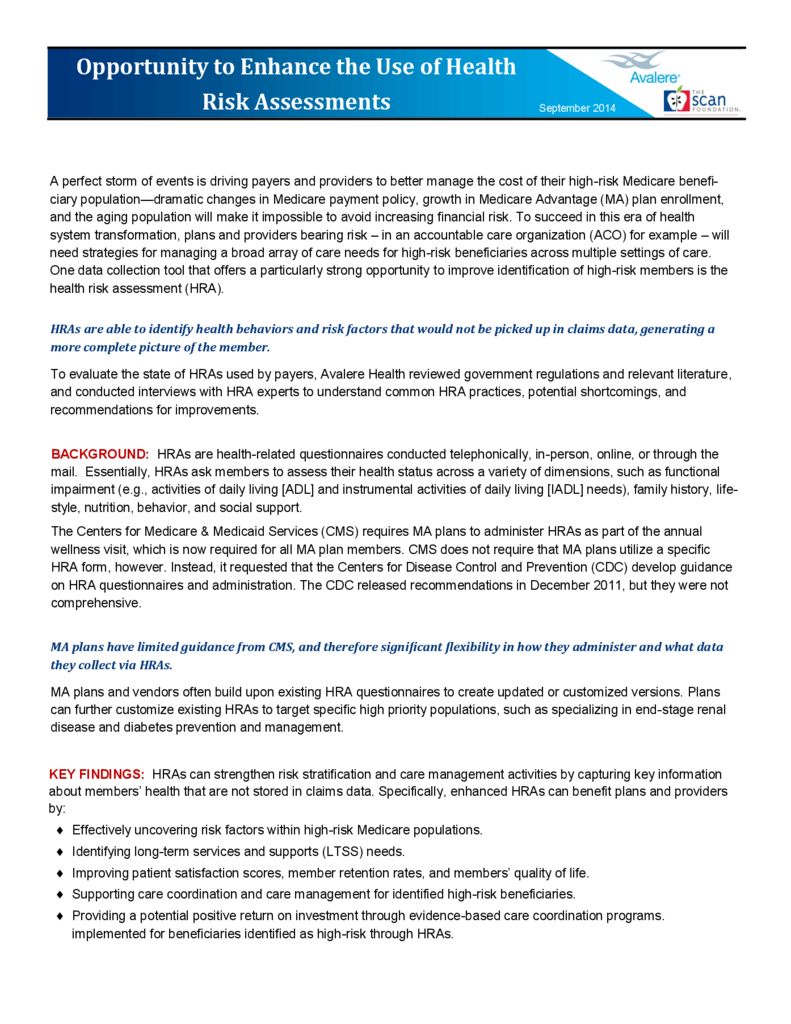Opportunity to Enhance the Use of Health Risk Assessments
summary
To succeed in this era of health system transformation, plans and providers bearing risk – in an accountable care organization (ACO) for example – will need strategies for managing a broad array of care needs for high-risk beneficiaries across multiple settings of care. Download this fact sheet to learn more.
Date Updated: 09/01/2014A perfect storm of events is driving payers and providers to better manage the cost of their high-risk Medicare beneficiary population—dramatic changes in Medicare payment policy, growth in Medicare Advantage (MA) plan enrollment, and the aging population will make it impossible to avoid increasing financial risk. To succeed in this era of health system transformation, plans and providers bearing risk – in an accountable care organization (ACO) for example – will need strategies for managing a broad array of care needs for high-risk beneficiaries across multiple settings of care. One data collection tool that offers a particularly strong opportunity to improve identification of high-risk members is the health risk assessment (HRA).
HRAs are able to identify health behaviors and risk factors that would not be picked up in claims data, generating a more complete picture of the member.
To evaluate the state of HRAs used by payers, Avalere Health reviewed government regulations and relevant literature, and conducted interviews with HRA experts to understand common HRA practices, potential shortcomings, and recommendations for improvements…
Download the publication for all visuals and complete references.
Continue Reading
The SCAN Foundation aims to identify models of care that bridge medical care and supportive service systems in an effort to meet people’s needs, values, and preferences. Care coordination is a central component of this vision, which ultimately leads to more person-centered care. This brief outlines The SCAN Foundation’s vision for care coordination in a person-centered, organized system.
This policy brief describes California’s results in the 2014 Long-Term Services and Supports State Scorecard, identifying areas for improvement as well as policy opportunities to transform and improve the state’s system of care.
A white paper and series of briefs from Avalere Health produced with support from The SCAN Foundation explore the use of non-medical data to better coordinate care for high risk Medicare beneficiaries, which can lead to improvements in care while providing health plans a return on investment.


